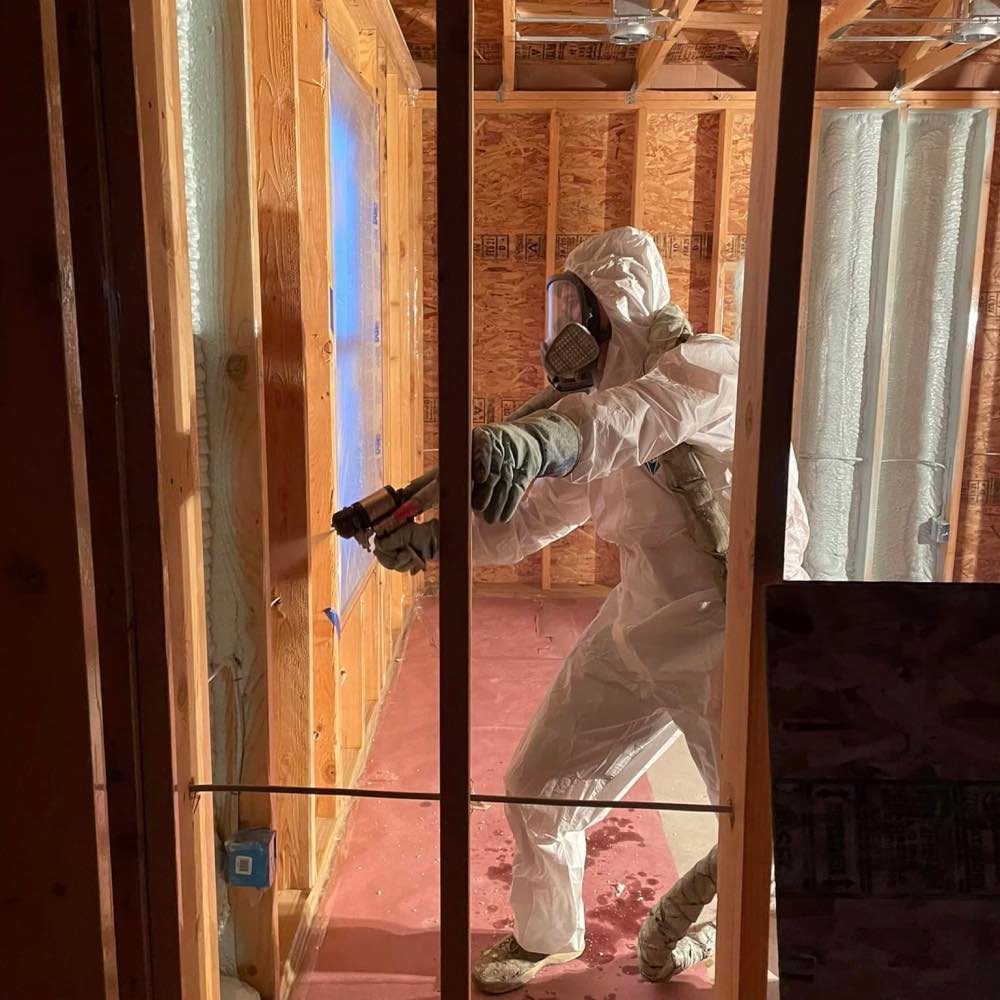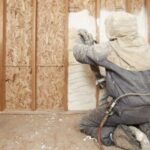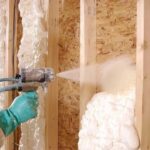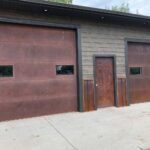How Thick Should Spray Foam Insulation Be?

A common option for insulation is spray foam because of its structural support, moisture resistance, and thermal efficiency. Using the appropriate insulation thickness for various applications is crucial to maximizing these benefits. This article looks at how thick spray foam insulation should be and what considerations to take into account for different parts of your structure.
What determines spray foam thickness?
- Climate and regional requirements: Insulation requirements vary, for example, in colder areas, where more insulation is required to contain heat and reduce energy consumption. The U.S. Department of Energy recommends better insulation or higher R-values in colder climates.
- R-value standards and building codes: Building codes provide minimum R-values for many components of a home, including walls, ceilings, and basements. With a set standard, insulation efficiency is assured. As a rule of thumb, open-cell foam typically has an R-value of 3.5 per inch, and closed-cell foam has an R-value of 6 to 7 per inch; depending on the circumstances, more foam may be added.
Recommended Thicknesses
- Walls: Closed-cell spray foam two to three inches thick provides an effective barrier against moisture and heat. Because of its lower density, open-cell foam may require at least three inches of thickness to achieve a comparable R-value.
- Roofs and attics: For attics, thick insulation is recommended, with 8 to 10 inches of open-cell foam or 5 to 6 inches of closed-cell foam. Thicker applications can minimize heat loss and, consequently, improve the energy efficiency of the home.
- Crawls and basements: For these spaces, two to three inches of closed-cell foam are required, as they are places prone to moisture. This layer thickness provides insulation and creates an effective barrier against the growth of mold and mildew.
Benefits of using the right spray foam thickness
- Greater energy efficiency: Properly sprayed spray foam can reduce airflow between rooms, thus preventing heat loss. If done right, it can save up to 30% on energy costs.
- Mold and moisture control: Closed-cell foam acts as a vapor barrier, making it especially useful in basements and other areas that accumulate moisture.
- Improved structural stability: The density of closed-cell foam strengthens roofs and walls, which is useful in areas with extreme weather variations.
Perfect Solution
The correct spray foam thickness is essential for energy savings and building longevity. If you are looking to improve your insulation, visit Seamless Systems to learn more about our high-quality spray foam solutions.
Our solutions are tailored to the specific needs of our customers, so contact us today at (307) 680-6103!




